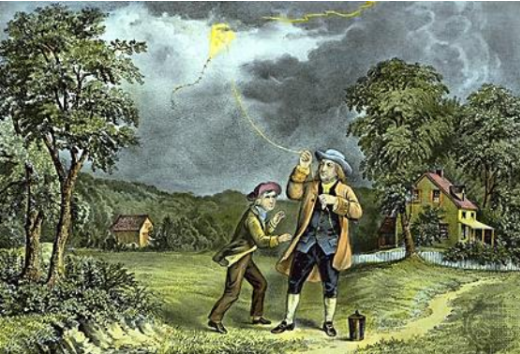HSPT Reading Practice Questions
The HSPT Reading subtest covers Reading Comprehension and Word-in-Context/Vocabulary. The Reading subtest measures a student’s ability to interpret ideas and recognize the meanings of words.
- Reading Comprehension – Read a passage ranging from topics that cover social studies to science to popular culture and current events. Answer the questions using the information provided in the passage.
- Word-in-Context/Vocabulary – Determine the meaning of words as they are used in brief phrases.
Below you will find sample questions that are representative of Reading questions your child will see on the test but are not taken directly from the actual HSPT that is being administered this year.
BENJAMIN FRANKLIN
1706-1790
by Charles Gibson
“HE SNATCHED THE LIGHTNING FROM THE SKIES AND THE SCEPTRE FROM TYRANTS”

WE have first-hand information concerning the life of Benjamin Franklin, for although he did not publish an autobiography, he wrote down the story of his life in the form of a very long letter to his son.
While it is true that Franklin rose “from a printer’s boy to first Ambassador of the American Republic,” I think that statement by itself is apt to give an impression of even a humbler origin than was the case.
Benjamin’s father, who had been a wool-dyer in this country, emigrated, about the year 1682, to that part of America then known as New England, but Benjamin, who was the fifteenth in a family of seventeen, was not born till twenty-five years later. Although he was born in Boston in 1706, he was a British subject, the Americans being then but colonists of Great Britain. New England was still young, the father of Benjamin’s mother having been one of the first settlers in that part.
Although Benjamin had only two years’ schooling, which was between the age of eight and ten years, he must have received good tuition from his father, for he was able to read before he went to school. He tells us that his father always made it a point that the table-talk was of interest and instruction to the children. There was never any discussion of their food; that was strictly prohibited. Even if the food was not to their minds, or was extra pleasing, or was not well cooked, no remark whatever was to be made. Benjamin tells us that with this good training he found in later life that he was quite indifferent to what kind of food was set before him. He found this a great convenience in traveling; he did not envy those whose delicate tastes were often bringing them into conflict with the innkeepers. This avoidance of thinking about the food became such a habit with Franklin that he says, “indeed, I am so unobservant of it, that to this day I can scarce tell a few hours after dinner of what dishes it consisted.”
Another habit formed by Benjamin was to waste no time. No doubt he was taught this by his father, for he showed signs of this habit at a very early age, as we may gather from the following incident. When a child he felt that the very long graces which his father said before and after meals occupied a good deal of time. One day, while the little fellow was watching the winter’s meat being salted and stored away in casks, he asked his father if it would not do to say grace over the whole lot once for all as it would save a lot of time.
1. What does the following quotation taken from the beginning of the passage MOST LIKELY refer to?
“HE SNATCHED THE LIGHTNING FROM THE SKIES AND THE SCEPTRE FROM TYRANTS”
A. Franklin was a mythical god.
B. Franklin created artificial light.
C. Franklin had control over many people.
D. Franklin was the first meteorologist.
2. Which of the following statements BEST illustrates how Franklin’s father’s career changed when he immigrated to America?
A. He started working as a wool-dyer, instead of a printer.
B. He continued working as a wool-dyer, just as he previously had.
C. He started working as a printer, instead of a wool-dyer.
D. He retired.
3. Why was Franklin not considered an American, even though he was born in New England?
A. New England was the first American state.
B. New England did not have the right to grant American citizenship.
C. New England was still under the control of Great Britain.
D. Franklin was an American, making this question untrue.
4. Which of the following statements from the passage reflects Franklin’s feelings about food?
A. “Another habit formed by Benjamin was to waste no time.”
B. “We have first-hand information concerning the life of Benjamin Franklin…”
C. “I think that statement by itself is apt to give an impression of even a humbler origin than was the case.”
D. “I can scarce tell a few hours after dinner what dishes it consisted.”
Below you will find a sample word-in-context/vocabulary question. Choose the answer that means the same as the underlined word.
5. To collaborate on the project
A. disagree
B. cooperate
C. object
D. oppose
Are you ready to start preparing your child for the HSPT? Are you interested in more HSPT practice? We have over 1,700 HSPT practice questions, plus expert tutors, engaging test prep, and more! Try out our 100 Free Questions today!
See if TestingMom.com supports your child’s test by your school district. If you don't see your child's school district listed, check with us! We have practice for other tests as well.



Tell us about your experiences